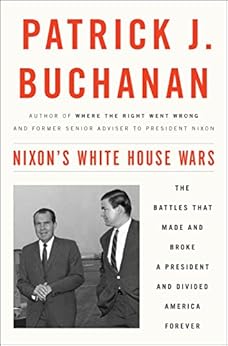"Pay the soldiers. The rest do not matter."
This was the deathbed counsel given to his sons by Roman Emperor Septimius Severus in A.D. 211.
Nicolas Maduro must today appreciate the emperor's insight.
For the political survival of this former bus driver and union boss hangs now upon whether Venezuela's armed forces choose to stand by him or to desert him and support National Assembly leader Juan Guaido.
Wednesday, Guaido declared Maduro's election last May to a second six-year term to be a sham, and had himself inaugurated as acting president.
Thursday, the defense minister and army chief General Vladimir Padrino Lopez, with his top brass, dismissed the 35-year-old Guaido as a U.S. puppet, and pledged allegiance to Maduro.
Friday, Secretary of State Mike Pompeo told the U.N. Security Council: "Now it is time for every other nation to pick a side. ... Either you stand with the forces of freedom, or you're in league with Maduro and his mayhem."
By Friday, however, the world had already taken sides.
Russia and China stood by Maduro, as did NATO ally Turkey, with President Erdogan phoning his support. Mexico, Nicaragua, Cuba and Bolivia were also with Maduro.
Backing Guaido are Venezuela's neighbors Ecuador, Brazil and Colombia, the U.S. and Canada, and the Organization of American States.
Britain, France, Germany and Spain have sent Maduro a diplomatic ultimatum: Agree in eight days to new elections or we back the 35-year-old Guaido, who, until this year, was an unknown.
All options are on the table, says President Donald Trump. But Russia called Guaido's action a "quasi-coup" and warned that intervention could result in "catastrophic consequences." Vladimir Putin also phoned Maduro with his support.
The stakes for all sides here are huge. Russia has contractors in Venezuela and has lent the regime billions. In a show of solidarity, Putin recently flew two strategic bombers to Venezuela.
China has loaned Venezuela tens of billions, with Caracas paying Beijing back in oil.
Cuba has sent military and intelligence officers to maintain internal security. Hugo Chavez had seen in Fidel Castro a father figure and modeled his new Venezuela on Castro's Cuba—with similar results.
Where hundreds of thousands fled Castro's revolution in the 1960s, three million Venezuelans have fled to Ecuador, Brazil, Colombia and other South American countries and the USA.
The economy is in a shambles. Though Venezuela has the largest oil reserves on earth, production is a fraction of what it once was. Cronyism and corruption are endemic. Inflation has destroyed the currency. There is poverty, malnutrition and shortages of every necessity of modern life.
Yet, still, the crucial question: What will the soldiers do? And if the military stands with Maduro, and Maduro refuses to go, what do the Americans do to force him out?
Invade? That would invite disaster. Venezuela is not Panama, Haiti or Grenada. Larger than Texas, its population is more than 30 million. And U.S. forces are already committed around the world.
A blockade and sanctions would magnify and deepen the suffering of the people of Venezuela long before they would bring down the regime. Would our allies support a blockade? And if years of suffering by the Venezuelan people have not shaken Maduro's hold on power, what makes us believe more of the same would persuade him?
Maduro and his army are being offered amnesty if they peacefully depart. But what would Maduro's fate be if he flees?
If he gives up power under U.S. threat, he is finished and disgraced as a coward. Would he not prefer to go down fighting?
And if the leadership of the army should abandon Maduro, there are younger ambitious officers who would surely see a rewarding future in fighting to save the regime.
Are we inviting a civil war in Venezuela? Should the shooting start in Caracas, what do we do then?
Did anyone think this through?
Maduro is an incompetent brutal dictator whose ideology has helped to destroy a nation. But if he can change the narrative from a confrontation between a tyrant and his persecuted people to that of an embattled defender of Venezuela being attacked by Yankee imperialists and their domestic lackeys, that could resonate among the masses in Latin America.
And from all indications, Maduro intends to defy the U.S. and rally the radicals and anti-Americans in the hemisphere and the Third World.
Guiado's constitutional claim to the presidency of Venezuela was a scheme cooked up in collusion with Washington, made in the USA, with Secretary of State Pompeo, John Bolton and Sen. Marco Rubio signing on, and President Trump signing off. This was Plan A.
But if Plan A does not succeed, and Maduro, with America's prestige on the line, defies our demand that he yield, what do we do then? What is Plan B?
"Assad must go!" said Barack Obama. Well, Assad is still there—and Obama is gone.
Will the same be said of Maduro?
COPYRIGHT 2018 CREATORS.COM
 Patrick J. Buchanan needs no introduction to VDARE.COM readers; his books State of Emergency: The Third World Invasion and Conquest of America, and Suicide of a Superpower: Will America Survive to 2025? are available from Amazon.com. Patrick J. Buchanan is the author of “The Greatest Comeback: How Richard Nixon Rose From Defeat to Create the New Majority.
Patrick J. Buchanan needs no introduction to VDARE.COM readers; his books State of Emergency: The Third World Invasion and Conquest of America, and Suicide of a Superpower: Will America Survive to 2025? are available from Amazon.com. Patrick J. Buchanan is the author of “The Greatest Comeback: How Richard Nixon Rose From Defeat to Create the New Majority.
His latest book, published May 9, is “Nixon’s White House Wars: The Battles That Made and Broke a President and Divided America Forever.”
See Peter Brimelow’s review: “Wheel And Fight”—Pat Buchanan’s Nixon Book Provides Road Map For Trump.